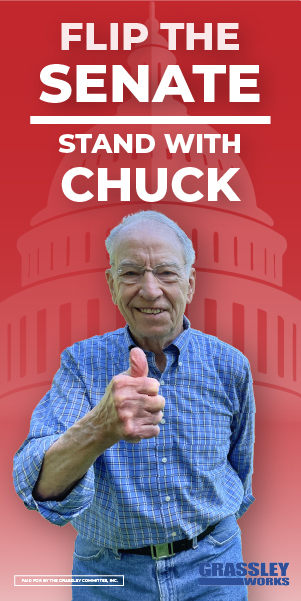From my experience traveling across Iowa and visiting with parents and teachers, I am convinced that having more choice in education is vital.
Real-life stories of change from parents and private school leaders illustrate the importance of choice in education. A small private school principal in eastern Iowa shared, “We’ve increased our numbers this past year because of COVID-19. Parents want full in-school learning, and when they get here, they are amazed at the strong rigor. They didn’t realize the character-building their kids were missing.”
Keisha (student’s name changed to protect identity) was being bullied in her former inner-city school resulting in an academic slide. She had a friend attending a small private school near their neighborhood. Her friend encouraged her to try it out, but Keisha did not think she could attend because of the cost, as her parents were already struggling to make ends meet. However, the school found a way to cover much of her tuition. Keisha now sings the praises of her school, teachers, and the love she feels there every day. She graduates next spring.
These stories are not intended to attack public school teachers. I love teachers; they are amazing people and do fantastic work. What I am critiquing is a one-size-fits-all, massive bureaucratic corporate monopoly education system. Let’s face it; our current system doesn’t meet the needs of all Iowans anymore. It’s time for us to look at more options built on choice, freedom, and parental accountability.
Opportunity is at the heart of school choice. Iowa’s children should not be limited because of zip codes or socioeconomic status preventing them from obtaining a quality education that best serves their needs. Governor Kim Reynolds has started an important conversation when she introduced the Students First Act, which seeks to remove educational opportunity barriers.
The Students First Act is a comprehensive reform plan calling for expanded open enrollment by ending the voluntary diversity plans that five school districts currently utilize. Voluntary diversity plans place restrictions on the ability for students to open enroll out of a district. The proposal also calls for expanding charter schools in Iowa and increasing the Tuition and Textbook tax credit, which already helps numerous families.
Governor Reynolds is also proposing a “Students First Scholarship” program that targets children who are stuck in Iowa’s failing public schools as determined by federal guidelines. The “Students First Scholarship” creates an Education Savings Account (ESA), giving students the ability to switch from a public school to a private school. The “Students First Scholarship” is a step in the right direction, but a universal ESA program that would apply to all students in Iowa would be more beneficial. A recent poll demonstrated that 65 percent of Iowans hold a positive view of a universal ESA. The poll also showed Democrats, Republicans, and independents favor ESAs and that the support even surpassed the rural-urban divide.
Opponents of school choice say the “Students First Scholarship” will steal money from public schools. This is not true. Iowa students are funded an average of $16,314 per student. The “Students First Scholarship” would use dollars already allocated for students in failing schools, $5,200 to be exact. The school that the student left would have more dollars per remaining students. Parents get to send their child to the school of their choice, and local taxpayers save money. It’s a win for everybody!
In her Condition of the State address, Governor Reynolds was correct when she stated, “school choice isn’t a zero-sum game.” School choice is not about attacking or undermining public schools but rather empowering parents with the ability to provide the best possible education for their children. It is time we placed kids first, rather than school bureaucracy.
Walt Rogers is Deputy Director of Tax Education Foundation of Iowa, a public policy think tank, and he is a former state Representative from Cedar Falls.



